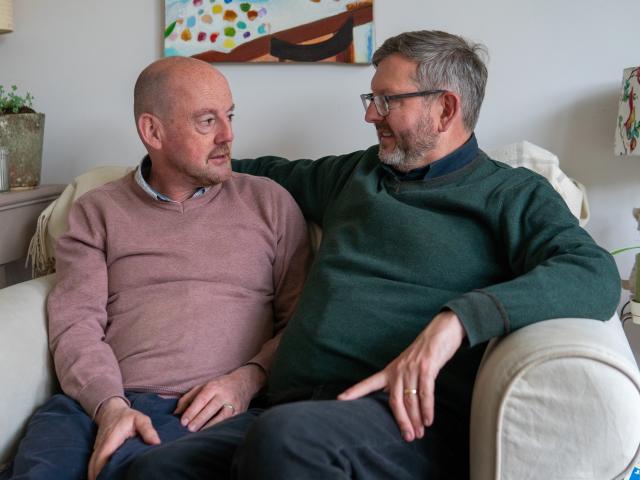
Symposium showcases vital research supporting pandemic recovery for communities in Wales
28 September
Evidence reviews which played a pivotal role in informing how Welsh Government can support communities who faced some of the most negative effects of the pandemic were the focus of the Wales COVID-19 Evidence Centre’s Symposium which took place this week.
With the theme of ‘Unequal Impact, Fairer Recovery’, speakers discussed research around the inequalities faced by LGBTQ+ communities, women and girls and disabled people which were made worse due to COVID-19.
Chief Medical Officer for Wales, Sir Frank Atherton, opened the event which was attended by over 100 delegates. He said: “Having the Centre available to pull the research together has been imperative for Wales. The Centre has informed equity discussions and helped us through a difficult journey.
“When I think about what the Evidence Centre does... I think it's excelled. The work they’ve done is fantastic.”
Tackling inequalities in the LGBTQ+ community
Through reviewing the research evidence, the Wales COVID-19 Evidence Centre found the LGBTQ+ community had worse experiences with mental health and wellbeing, health behaviours, safety, loneliness, and access to healthcare than the wider population.
The findings from the Centre’s review have been essential to Welsh Government’s development of the LGBTQ+ Action Plan for Wales. The plan aims to tackle the existing inequalities, to challenge discrimination and to create a society where LGBTQ+ people feel safe.
Supporting women and girls
During the pandemic women, particularly those of black, Asian and minority ethnic backgrounds, were at an increased risk of physical abuse, had reduced access to jobs and education and experienced poor health and wellbeing.
Through their review of the research evidence, the Wales COVID-19 Evidence Centre was able to provide vital input into Welsh Government’s renewed Action plan to tackle gender inequalities.
The plan addresses inequalities faced by women and girls and sets out Welsh Government’s ambition for greater gender equality in Wales.
Pandemic effects on disabled people
Evidence reviewed by the Wales COVID-19 Evidence Centre showed those living with a disability were more likely to be admitted to intensive care and to pass away with COVID-19. Studies showed the use of facemasks made communication difficult for people with hearing loss.
After looking at the research available, the Centre recommended more research is needed to evaluate support for disabled people during the recovery from the pandemic.
Professor Adrian Edwards, Director of the Wales COVID-19 Evidence Centre, said: “It was a pandemic of inequalities, and highlighted numerous places where inequalities still exist. It is essential we understand how the pandemic has impacted different communities in Wales and which initiatives have been effective in supporting them. Then we can prioritise actions to reduce the pandemic’s current and future effects.
“The evidence we provide at the Centre is critical to helping Welsh Ministers make policy decisions which can improve the lives of people in Wales. It’s an honour to be part of something which has the potential to help so many people.”
The event also showcased evidence reviews from Cardiff University students, who all received first class degrees, into the inequalities faced by prisoners, homeless people and how racism affects staff in the NHS.
Read more of the Centre’s reports on the report library and sign up to receive the Wales COVID-19 Evidence Centre newsletter.